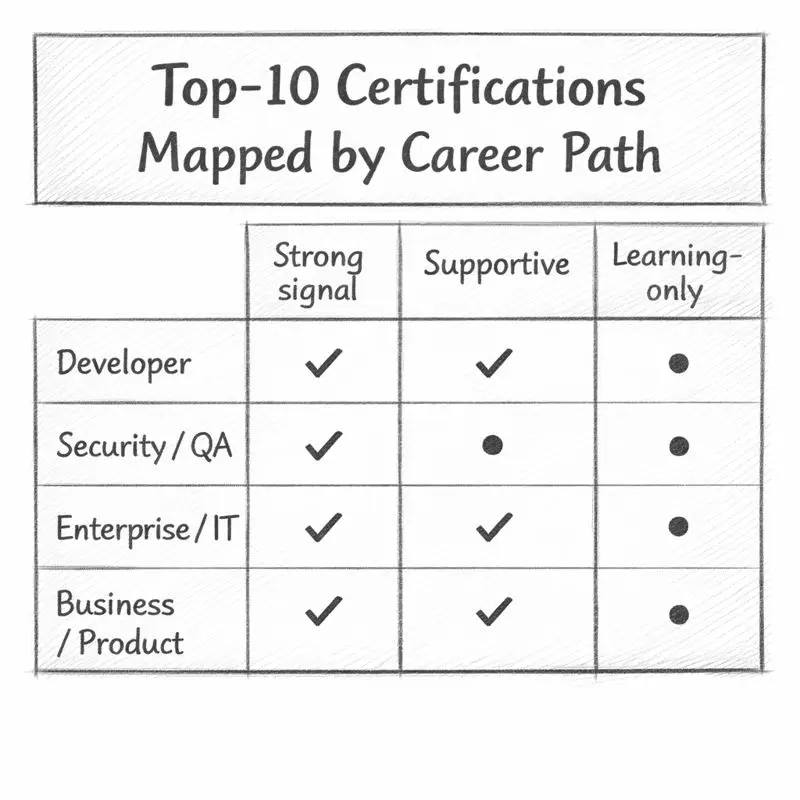Which Blockchain Certifications Actually Help Career Switchers Get Hired in 2025?
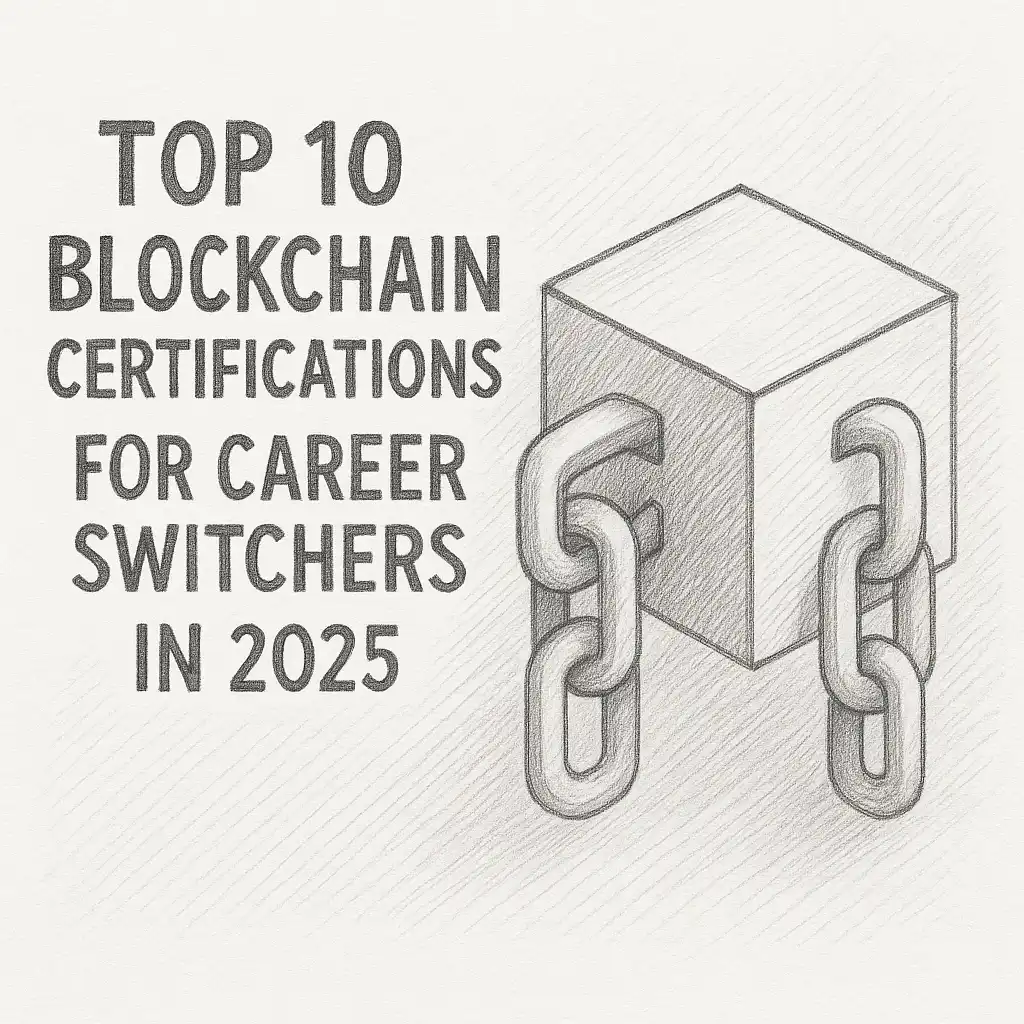
TL;DR
If you’re switching careers into blockchain in 2025, certifications can help — but only in specific ways.
They work best as entry signals, not proof of job readiness. Hiring teams still prioritize how you think, explain decisions, and apply learning.
This guide breaks down ten blockchain certifications that are commonly referenced in real hiring conversations, explains who each one actually helps, and shows how to combine certifications with projects and community participation for better outcomes.
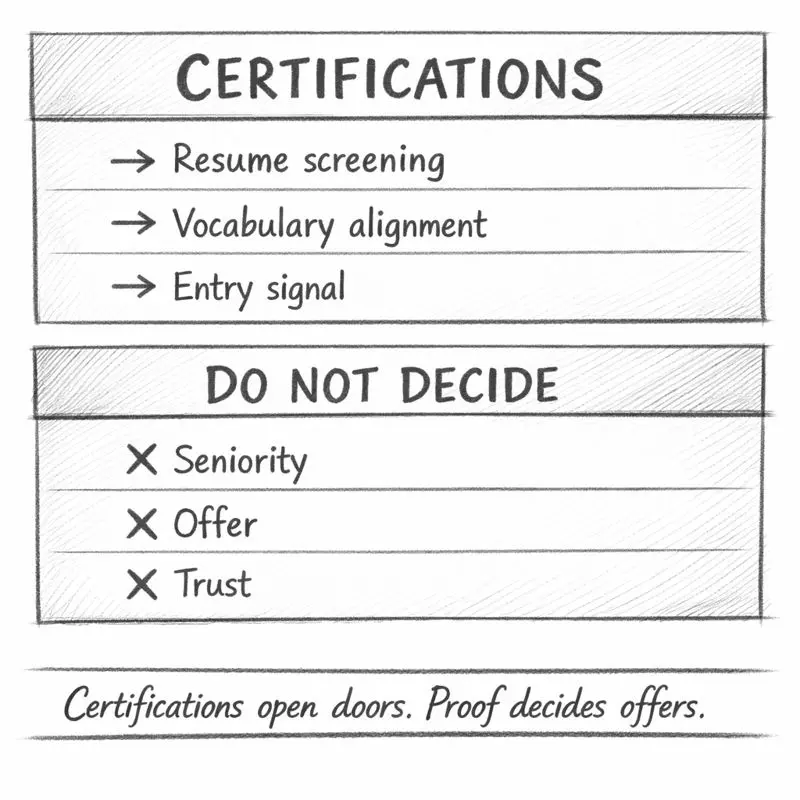
Switching careers is rarely simple — and moving into blockchain can feel even more uncertain. The industry moves fast, job titles vary wildly, and hiring expectations are often unclear, especially for professionals coming from non-Web3 backgrounds.
By 2025, blockchain is no longer be experimental. It is being adopted across finance, supply chains, gaming, infrastructure, and security-focused startups. At the same time, hiring teams are becoming more selective. They are no longer impressed by surface-level exposure or generic claims of “Web3 experience.”
This is where blockchain certifications often enter the conversation.
For career switchers, certifications can act as structured entry points — a way to learn the fundamentals, understand real use cases, and signal serious intent. But they are not all interpreted equally. Some certifications help candidates get noticed during early screening. Others mainly support learning but carry limited weight in interviews.
This guide breaks down ten blockchain certifications that are commonly referenced in real hiring conversations in 2025, explains who each one is actually useful for, and highlights where certifications stop mattering without proof.
If you’re considering a career switch into blockchain, this article is meant to help you choose deliberately, not optimistically.
Why Blockchain Certifications Matter for Career Switchers (and Where They Don’t)
Switching into blockchain is not just about interest or enthusiasm. Hiring teams want evidence that candidates understand how blockchain systems work, how decisions are made, and where risks lie.
Certifications help in a few specific ways:
They provide structured learning in a space where self-study can quickly become fragmented.
They help candidates speak clearly about concepts like consensus models, smart contracts, security trade-offs, or enterprise adoption during early interviews.
Some certifications expose learners to practical exercises, which can later be extended into portfolio projects.
However, certifications are not substitutes for proof.
Across hiring discussions on ArtOfBlockchain.club, a consistent pattern emerges:
certifications may open the door, but projects, explanations, and decision-making ability determine whether candidates move forward.
This is especially true for developer, security, and protocol-level roles, where interviewers probe how candidates think — not just what they’ve studied.
Because of this, the certifications below should be viewed as signals, not guarantees. Their value depends heavily on your background, target role, and how you apply what you learn afterward.
A Quick Reality Check Before the List
Not all blockchain certifications are treated equally by hiring teams.
Some are valued because they come from ecosystem-level organizations, enterprise foundations, or security-focused groups. Others mainly help with conceptual understanding but carry limited hiring weight on their own.
The list below reflects how certifications are commonly perceived in real hiring conversations, not how they are marketed.
If your goal is to switch careers successfully, the most effective approach is to use certifications as learning scaffolding, then pair them with:
Small but real projects
Clear explanations in interviews
Visible community participation
With that context in mind, here are the Top 10 Blockchain Certifications for Career Switchers in 2025.
TOP 10 CERTIFICATIONS
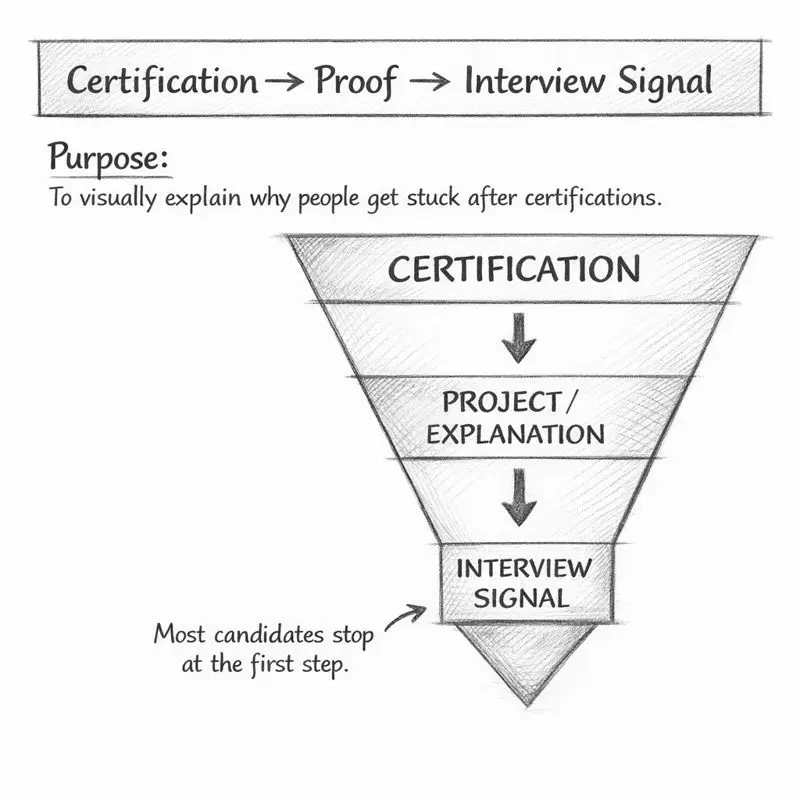
1. Certified Enterprise Blockchain Professional (CEBP) – 101 Blockchains
Duration: ~5 weeks
Cost: ~$399
Best for: Business professionals, consultants, project managers, enterprise-focused roles
The Certified Enterprise Blockchain Professional (CEBP) is one of the more widely referenced certifications for non-developers entering blockchain from traditional business or consulting backgrounds. Its strength lies not in teaching coding, but in helping professionals understand where blockchain makes sense in real organizations — and where it doesn’t.
The program focuses on enterprise architecture, adoption frameworks, and real-world use cases across industries like supply chain, finance, and healthcare. This makes it particularly relevant for roles where candidates are expected to translate business requirements into technical conversations, rather than write smart contracts themselves.
In hiring conversations, CEBP is typically interpreted as a strategy-level signal. It helps candidates speak clearly about implementation trade-offs, governance challenges, and organizational resistance — areas that frequently come up in enterprise blockchain interviews.
That said, it does not replace hands-on delivery experience. Candidates who rely on CEBP alone often struggle once interviews shift toward execution details. It works best when paired with case studies, internal tooling exposure, or project coordination experience.
Internal links:
https://artofblockchain.club/discussion/what-does-it-take-to-be-a-part-of-the-finance-team
https://artofblockchain.club/discussion/interview-prep-hub-non-developer-web3-roles
2. Certified Blockchain Security Expert (CBSE) – 101 Blockchains
Duration: ~4 weeks
Cost: ~$399
Best for: Security analysts, IT managers, professionals transitioning into blockchain security
Security remains one of the most sensitive areas in blockchain hiring, and the Certified Blockchain Security Expert (CBSE) certification addresses this directly. It focuses on cryptography fundamentals, threat modeling, common smart contract vulnerabilities, and secure system design from an architectural perspective.
CBSE is particularly useful for professionals who already have traditional security or IT backgrounds and want to pivot into blockchain without starting from zero. It helps bridge familiar concepts — like attack surfaces and risk mitigation — into blockchain-specific contexts.
In interviews, CBSE is usually seen as an entry-level security signal, not an audit credential. Hiring teams still expect candidates to demonstrate how they reason about vulnerabilities, incident response, and real attack scenarios.
Candidates who pair CBSE with testnet analysis, audit writeups, or vulnerability research discussions tend to extract far more value from it than those who treat it as a standalone qualification.
Internal links:
3. Cyfrin Updraft Solidity Smart Contract Developer (SSCD+)
Duration: Self-paced
Cost: Starts around $199
Best for: Smart contract developers, security-oriented engineers
Cyfrin Updraft’s SSCD+ program has gained strong credibility within the Ethereum ecosystem due to its project-driven and security-first approach. Unlike many short-form certifications, it emphasizes building, testing, and reasoning about real smart contracts rather than memorizing concepts.
Participants typically work through practical scenarios such as DeFi contracts, NFT systems, and governance mechanisms. The program places a heavy emphasis on secure Solidity practices, which aligns well with how smart contract interviews are conducted.
In hiring discussions, SSCD+ is not treated as a shortcut to senior roles. Instead, it signals that candidates have spent time grappling with real contract logic and common failure modes. When paired with GitHub repositories, test coverage, or audit-style explanations, it becomes a meaningful differentiator.
For career switchers aiming at smart contract engineering or eventual auditing paths, Cyfrin Updraft works best as a foundation for visible proof, not as an endpoint.
Internal links to add under this section:
https://artofblockchain.club/article/the-smart-contract-portfolio-that-shows-how-you-think
https://artofblockchain.club/discussion/smart-contract-developer-career-hub
4. Professional Certificate in Blockchain Fundamentals – UC Berkeley (edX)
Duration: ~6 weeks
Cost: ~$249
Best for: Beginners, analysts, business professionals, early-stage career switchers
UC Berkeley’s Blockchain Fundamentals program carries weight primarily because of institutional credibility. It provides a structured introduction to distributed systems, cryptoeconomics, and enterprise blockchain applications without overwhelming learners with implementation details.
This certification is particularly useful for professionals who want to build conceptual clarity first — especially those coming from finance, operations, or consulting backgrounds. It helps candidates develop the vocabulary and mental models needed to participate meaningfully in blockchain discussions.
In hiring contexts, this certification is typically viewed as a foundation marker, not proof of job readiness. It signals seriousness and baseline understanding, but interviewers still expect candidates to explain how concepts translate into real systems.
Many career switchers use this program as a first step before moving into more role-specific certifications or project work.
Internal links:
5. IBM Blockchain Essentials – IBM (edX)
Duration: ~4 weeks
Cost: ~$99
Best for: Enterprise blockchain roles, IT managers, system integrators
IBM Blockchain Essentials is a short, focused program designed around enterprise blockchain environments, particularly those involving Hyperledger Fabric. Its value comes from IBM’s long-standing involvement in permissioned blockchain systems used by large organizations.
The course covers blockchain fundamentals, smart contract concepts, and practical examples of enterprise implementation. While it does not dive deeply into decentralized protocols or DeFi, it maps closely to how blockchain is deployed inside corporations.
In hiring conversations, this certification is often interpreted as an enterprise-readiness signal. It works well for candidates targeting roles in supply chain, healthcare, or financial infrastructure teams, where permissioned systems and compliance constraints dominate.
As with other certifications, IBM Blockchain Essentials is most effective when paired with system design discussions or integration-focused experience.
Internal links:
6. Blockchain Applications Certification – Duke University (Coursera)
Duration: ~3–4 months
Cost: ~$79/month
Best for: Business analysts, consultants, strategy and product-adjacent roles
Duke University’s Blockchain Applications program is positioned closer to applied problem-solving than pure theory. Instead of focusing on protocol internals, it emphasizes how blockchain can be used to design solutions for real-world business problems such as supply chain tracking, digital identity, and financial workflows.
For career switchers coming from consulting, analytics, or product backgrounds, this certification helps build structured thinking around use cases rather than code execution. Hiring teams typically view it as a signal that candidates understand why blockchain might be chosen — not that they can implement it independently.
Its value increases when candidates can clearly explain the trade-offs behind the projects they worked on, especially in interviews that test judgment rather than syntax.
Internal links:
https://artofblockchain.club/discussion/interview-prep-hub-non-developer-web3-roles
https://artofblockchain.club/discussion/guidance-on-how-to-land-a-good-job-in-web3
7. Hyperledger Fabric Certification – Linux Foundation
Duration: Self-paced
Cost: Varies
Best for: Enterprise blockchain developers, architects, system integrators
Hyperledger Fabric certifications, issued by the Linux Foundation, are among the most credible enterprise blockchain credentials available. They are designed for permissioned blockchain systems where governance, identity management, and compliance are core requirements.
These certifications are particularly relevant for professionals transitioning from traditional IT, backend engineering, or enterprise architecture roles. Hyperledger frequently appears in job descriptions related to supply chain, finance, healthcare, and large-scale consortium networks.
In hiring conversations, this certification is interpreted as an enterprise-focused signal, not a Web3-native or DeFi credential. Candidates targeting startups building decentralized protocols may find it less relevant, but for corporate blockchain adoption roles, it maps closely to real production environments.
Internal links:
8. ConsenSys Blockchain Developer Program
Duration: Self-paced
Cost: Varies
Best for: Ethereum developers, dApp engineers, ecosystem-focused roles
ConsenSys is deeply embedded in the Ethereum ecosystem, and its developer programs reflect that focus. Rather than offering broad blockchain theory, these programs emphasize Ethereum tooling, workflows, and ecosystem familiarity.
Hiring teams rarely treat this program as a standalone qualification. Instead, they interpret it as evidence that candidates understand how Ethereum applications are actually built, tested, and deployed using real tools.
This certification works best when paired with GitHub repositories, testnet deployments, or open-source contributions. For career switchers moving into Ethereum-centric development roles, it helps bridge the gap between learning Solidity and navigating production-grade development environments.
Internal links:
9. Chainlink Oracle & Automation Training
Duration: Modular / short bootcamps
Cost: Often free or low-cost
Best for: DeFi developers, data-focused blockchain roles
Oracle integration is a critical skill in many blockchain systems, yet it is often underrepresented in generic certifications. Chainlink’s training programs focus on real-world data feeds, automation, and cross-chain communication, all of which appear frequently in DeFi and tokenized asset projects.
Rather than acting as a general blockchain certification, this training functions as a role-specific skill signal. Hiring teams value it most when candidates can explain how oracles influence system security, pricing integrity, and protocol reliability.
Career switchers who apply this training directly in smart contract projects tend to extract far more hiring value than those who treat it as theoretical learning.
Internal links:
10. OpenZeppelin Smart Contract Security Training
Duration: Self-paced
Cost: Varies
Best for: Smart contract developers, security-focused engineers
OpenZeppelin is one of the most trusted names in smart contract security. While its programs are not always branded as formal certifications, the training itself carries significant credibility in hiring conversations.
The curriculum emphasizes secure contract design, common vulnerability patterns, and defensive development practices. Hiring teams recognize OpenZeppelin training as a strong learning signal, especially when candidates apply the concepts through audits, tests, or open-source contributions.
For career switchers aiming toward security-first development or eventual auditing roles, this training often carries more practical weight than generic security certificates, provided it is backed by visible proof of work.
Internal links:
Emerging Blockchain Trends That Matter for Careers in 2025
Blockchain in 2025 is no longer a single skillset. Hiring demand is spreading across specializations, and certifications that age well tend to align with these shifts rather than generic overviews.
Here are the trends that consistently show up in hiring discussions and job requirements.
1. DeFi Is Maturing, Not Disappearing
Decentralized finance has moved beyond early experimentation. Protocols are focusing more on risk management, capital efficiency, and long-term sustainability. This has increased demand for professionals who understand protocol mechanics, oracle dependencies, and failure scenarios, not just surface-level DeFi concepts.
Certifications or training that include real protocol analysis or hands-on contract work tend to stay relevant longer than theory-heavy programs.
2. AI + Blockchain Roles Are Emerging Slowly but Seriously
AI is not replacing blockchain roles, but it is increasingly intersecting with them. Use cases such as fraud detection, compliance automation, and on-chain analytics are driving demand for professionals who can reason across both domains.
Career switchers coming from data, analytics, or security backgrounds often benefit from certifications that emphasize systems thinking rather than narrow tool usage.
3. Tokenization of Real-World Assets Is Becoming Regulated
Tokenization is no longer limited to experimental projects. Regulated markets in regions like Singapore, the UAE, and parts of Europe are adopting tokenized representations of real-world assets.
This has created demand for roles that combine blockchain fundamentals with regulatory awareness, especially in enterprise and financial services environments. Certifications aligned with enterprise use cases tend to map better here than DeFi-native programs.
4. Enterprise Blockchain Adoption Is Quiet but Consistent
While headlines focus on Web3 startups, enterprise blockchain adoption continues steadily in supply chain, healthcare, and financial infrastructure. These environments prioritize permissioned networks, identity management, and integration over token design.
Certifications such as Hyperledger or IBM-aligned programs retain long-term relevance for candidates targeting these roles.
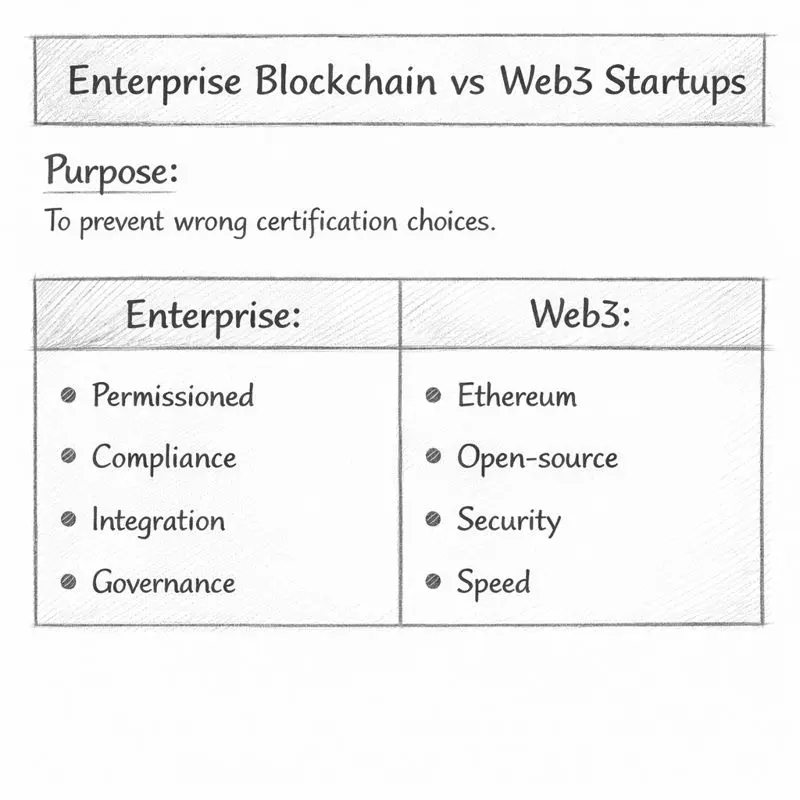
5. Regulatory Literacy Is No Longer Optional
Regulations like MiCA (EU), GIFT City (India), and frameworks emerging from Dubai and Singapore are shaping how blockchain products are built and operated.
Career switchers who understand how regulation influences architecture and operations are often viewed more favorably than those who treat compliance as an afterthought.
Certifications Alone Are Not Enough: Why Community and Proof Matter
Across hundreds of career-related discussions on ArtOfBlockchain.club, one pattern consistently stands out:
Certifications help candidates get shortlisted.
Proof determines whether they get hired.
Hiring managers rarely evaluate certifications in isolation. They look for signs that candidates can:
Explain decisions clearly
Reason through trade-offs
Reflect on mistakes
Apply learning in real contexts
This is where community participation becomes a compounding advantage.
By actively engaging in focused discussions, career switchers:
Learn faster by asking real questions
Understand what interviews actually test
Discover unspoken hiring expectations
Build a visible footprint that recruiters notice
Relevant discussions to explore:
https://artofblockchain.club/discussion/proof-based-hiring-in-web3
https://artofblockchain.club/discussion/job-search-web3-career-navigation-hub
Certifications start the journey. Community participation sustains it.
Frequently Asked Questions (FAQs)
1. Are free blockchain courses worth it compared to certifications?
Free resources are excellent for testing interest and building familiarity. Certifications add value when they provide structure, assessments, and recognized learning paths. Hiring teams rarely shortlist candidates based on self-study alone.
2. Can blockchain certifications replace a degree?
No. Degrees signal long-term academic commitment, while certifications signal recent, role-focused learning. For career switchers, certifications often carry more immediate relevance, but they work best alongside real-world application.
3. How do certifications compare to hackathons?
Hackathons demonstrate execution under pressure and collaboration. Certifications demonstrate structured learning. Candidates who combine both tend to perform better in interviews than those who rely on only one.
4. Which certifications are best for non-technical professionals?
Programs like CEBP (101 Blockchains), Duke University’s Coursera track, and UC Berkeley’s fundamentals course work well for consultants, managers, and analysts who need blockchain fluency without hands-on coding.
5. How often should blockchain certifications be updated?
Because blockchain evolves quickly, certifications should be revisited every 18–24 months, especially if they involve tooling, security practices, or regulatory context.
6. Do employers value certifications or projects more in 2025?
Projects carry more weight. Certifications help open doors, but projects — even small ones — show how candidates think, troubleshoot, and explain decisions.
7. Which certification helps most for smart contract auditing paths?
Security-focused programs like CBSE or Cyfrin Updraft help build foundations. Pairing them with audit walkthroughs, bug bounty participation, or GitHub write-ups matters more than the certificate itself.
8. Is blockchain hiring limited to the U.S. and Europe?
No. Singapore, the UAE, India, and parts of Africa continue to see strong demand. Certifications with global recognition help candidates apply across borders, especially for remote roles.

Conclusion: How to Use Certifications the Right Way
Blockchain certifications are not magic tickets. They are signals — and like all signals, their strength depends on context.
For career switchers, certifications work best when they:
align with a specific role
support hands-on learning
are paired with visible proof
are reinforced through community engagement
The most successful transitions into blockchain don’t rely on a single credential. They combine structured learning, applied work, and ongoing discussion.
Choose certifications that fit your background, build projects around what you learn, and stay active where real hiring conversations happen. That combination — not any single course — is what turns career switchers into blockchain professionals.

